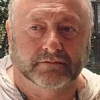Is Vladimir Putin a dictator or not?
In
Log in if you are already registered
The Wikipedia article on Putin is quite balanced, and gives a brief summary of his career. It should help you understand what kind of leader Putin is.
Whether or not Putin can reasonably be called a “dictator” is a more difficult question to answer. The concept “dictator” is vague, used in many different senses, and its meaning is in large part in the mind of the beholder.
You can read the Wikipedia article on dictatorship, but it won’t help you much. Some dictatorships are clear examples, like those of Hitler, Stalin, Mussolini, Pinochet, and the military junta that ruled Greece from 1967–74. However, strong leaders like Franklin Roosevelt, Lyndon Johnson, and Charles de Gaulle are also sometimes called dictators by those who disliked them and the way they governed. On the other hand, there are many regimes with strong leaders or which have some authoritarian characteristics, where the label “dictatorship” is entirely inappropriate. Putin’s regime is one of these.
David Lecomte is right in pointing out that most people who live under real dictatorships, feel like Daniil Ishchenko. They “do not feel [themselves to be] living under a dictator. Nobody tells [them] what to do, what to think. Nobody forbids [them] to travel the world.” Lecomte is right in saying that the “average person in Germany, in the 1930s, would have said almost exactly the same,” and that many Chileans would have said the same about life under Pinochet.
This is because all societies consist of people with differing interests, differing views about the world, and different views about what they would like their countries to be like. Under democratic regimes, such differences are worked out through various peaceful political processes. Dictatorships are regimes in which the dictator and his/her allies are at war with those who oppose them. If you are not among the opposition, you can have a fairly normal life, such as Daniil describes. However, in real dictatorships, thousands or even tens of thousands disappear, and are tortured or killed. Criticism of the regime can be picked up by the secret police and can lead to the worst of consequences.
This bears no relationship to the regime over which Vladimir Putin presides in Russia. In addition to the aspects of life Daniil mentions, there are other features that distinguish Putin’s Russia from real dictatorships. Daniil doesn’t have to have the slightest worry about making critical remarks about Putin and his regime. He doesn’t have to worry about being awakened in the middle of the night by the secret police and taken to be tortured and killed. He doesn’t even have to worry about taking part in political demonstrations, as long as he doesn’t provoke or disobey the police responsible for maintaining order. Despite increased control of the media, Daniil will have no problem finding critical perspectives on what is going on in the country. (For example, Novaya Gazeta http://en.novayagazeta.ru
The main reason why a normal democratic opposition has not yet emerged in Russia has little to do with repression or manipulation by the regime. It is that Russian citizens are not yet accustomed to bearing responsibility for their state, which has a long tradition of autocratic rule. It’s not that Russians are genetically incapable of democratic politics, it’s just that they are not accustomed to it. When Putin met with the demonstrators on Bolotny Ploshchad he asked them: “Where are your leaders? Where are your alternative programs?” There was no answer then and there is still no answer today. “Russia without Putin” was their slogan, but they still haven’t come up with an answer to the question: “What alternatives are there to Putin and his policies?” This question remains very much alive, and nothing is preventing such alternatives from emerging.
David Lecomte accepts every allegation of crimes supposedly committed by Putin as if they were proven facts. Some of these allegations may be true, although in all cases the evidence is thin to non-existent. Some of these crimes may even be false flag operations, mounted to discredit Putin. Moreover, even if all the allegations were true, it would not follow that they were characteristic of Putin’s regime.




